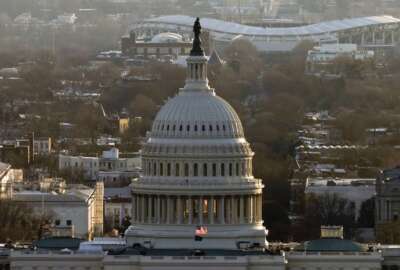Connolly, Eshoo release draft IT procurement bill
Reps. Eshoo, Connolly take on IT procurement reforms by floating a draft bill.
No mention in the State of the Union. Kicked out of the Defense Authorization bill for 2014. Reforms to federal IT aren’t garnering the type of support many thought they would after the HealthCare.gov debacle.
But wait, here comes another attempt.
Reps. Ann Eshoo (D-Calif.) and Gerry Connolly (D-Va.) released a draft version of the Reforming Federal Procurement of IT (RFP-IT) Act.
“Our draft bill puts proven best practices to work by instituting a White House office of IT procurement and gives all American innovators a fair shake at competing for valuable federal IT contracts by lowering the burden of entry,” said Eshoo in a statement.
Connolly, who also co-authored the Federal IT Acquisition Reform Act (FITARA), said large-scale IT failures remain too commonplace in government.
“Our RFP-IT discussion draft recognizes that transforming how the federal government procures critical IT assets will likely require bolstering ongoing efforts to comprehensively strengthen general federal IT management practices with targeted enhancements that promote innovative and bold procurement strategies from the White House on down,” Connolly said in a statement.
The draft bill details the basic ideas of how to improve federal IT procurement by:
- Creating a new Digital Government Office within the Executive Office of the President to review major IT projects before they begin. The office would depend on “top IT talent” to review all major IT projects and help agencies plan the contracting process. The federal chief technology officer would run this office with a goal of overseeing and advising agencies on technology to improve citizen services and government outcomes. The CTO also would oversee the Presidential Innovation Fellows program
- Having GSA establish and manage a fund to support the activities of the DGO by using 5 percent of the fees collected under governmentwide acquisition contracts and GSA schedules.
- Codifying the fellows program and call for participants to serve for 6-to-13 months.
- Enabling more small businesses to bid on IT contracts without having to spend thousands on compliance costs by lifting the threshold for a streamlined contracting process to $500,000 from $150,000.
Reaction to the draft has been cautious.
Mike Hettinger, senior vice president for the public sector at TechAmerica, said there are several provisions in the bill that need more discussion.
“One of the main goals of the bill — to open the federal government market to small and innovative business — is a worthy one,” he said. “We believe increasing the simplified acquisition threshold for the purchase of IT from $150,000 to $500,000 for small businesses helps foster this goal. But, we are concerned however that the creation of an Office of the federal CTO within the White House with the power to ‘prescribe such regulations regarding procurement’ may step on the current responsibilities of the Office of Federal Procurement Policy.”
Hettinger added TechAmerica also wants more details about the DGO’s charge to review every proposal for major IT systems. He said the definition of “major IT systems” seems overly broad and could include weapons systems.
RFP-IT will need support from high-ranking Republicans to make any real progress.
Rep. Darrell Issa (R-Calif.), chairman of the Oversight and Government Reform Committee, is likely to take another crack at FITARA this session. With Connolly as the co-author of FITARA too, it wouldn’t be surprising to see some elements of the RFP-IT Act merged into it.
RELATED STORIES:
Jan. 17 — Inside the Reporter’s Notebook: HeathCare.gov hearing takeaways, $60.4M in cyber awards
Dec. 20–Inside the Reporter’s Notebook: Top federal IT stories of 2013 provide few surprises
Copyright © 2025 Federal News Network. All rights reserved. This website is not intended for users located within the European Economic Area.
Jason Miller is executive editor of Federal News Network and directs news coverage on the people, policy and programs of the federal government.
Follow @jmillerWFED






